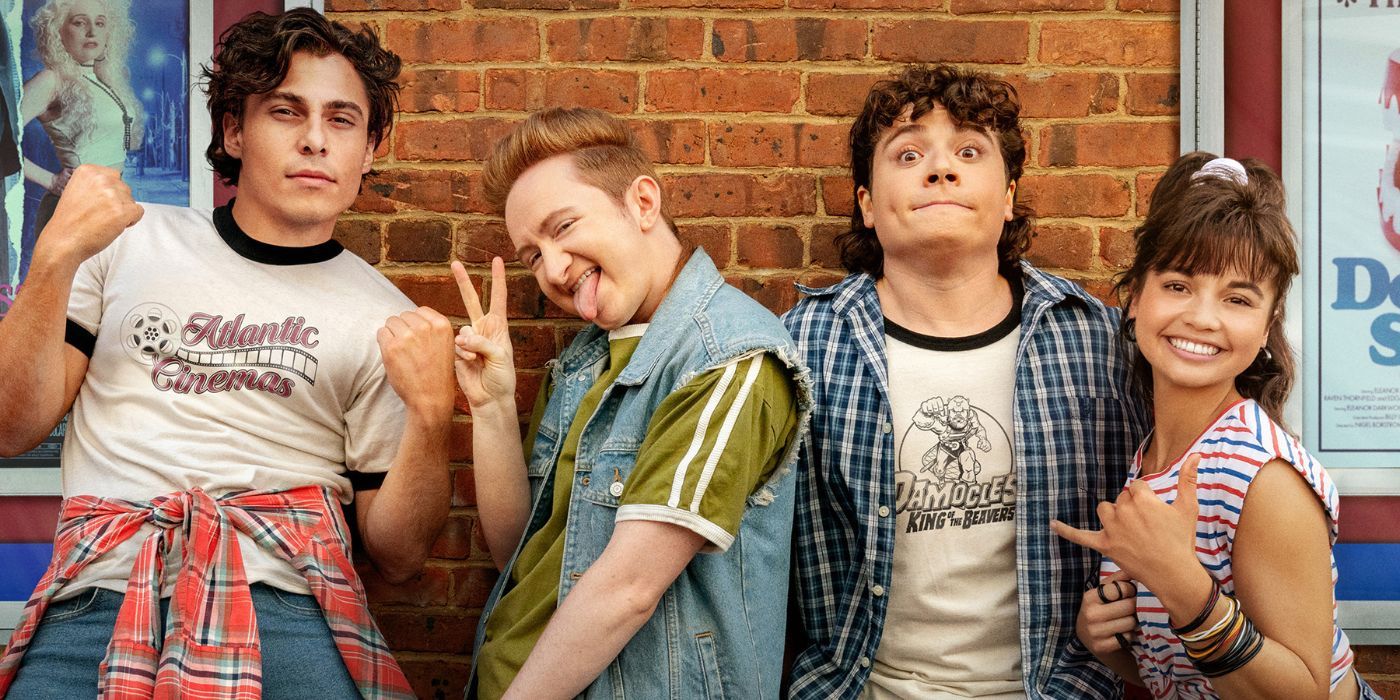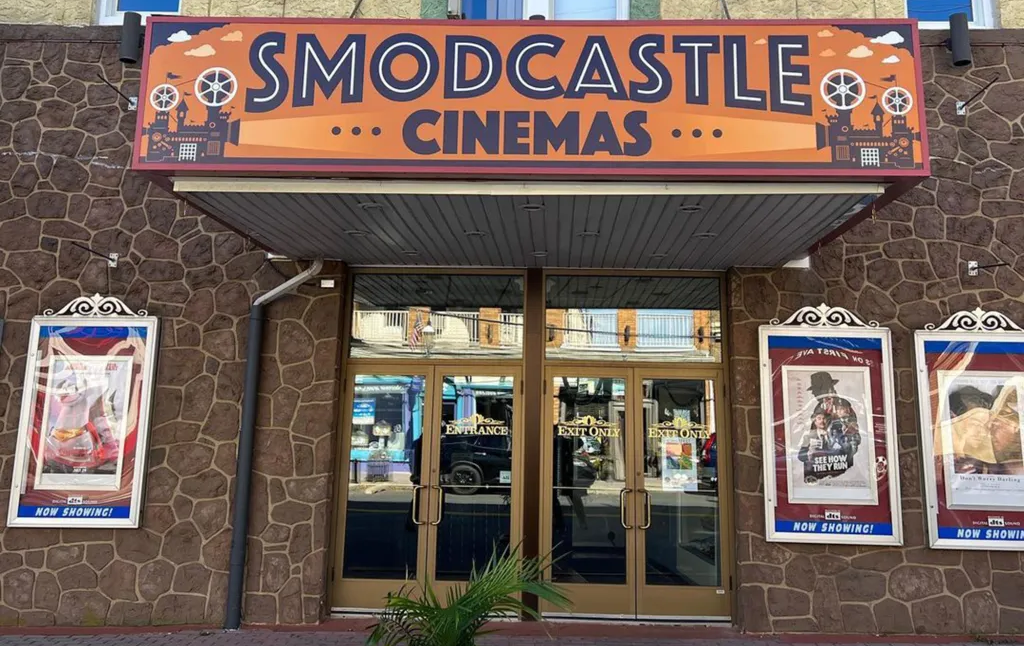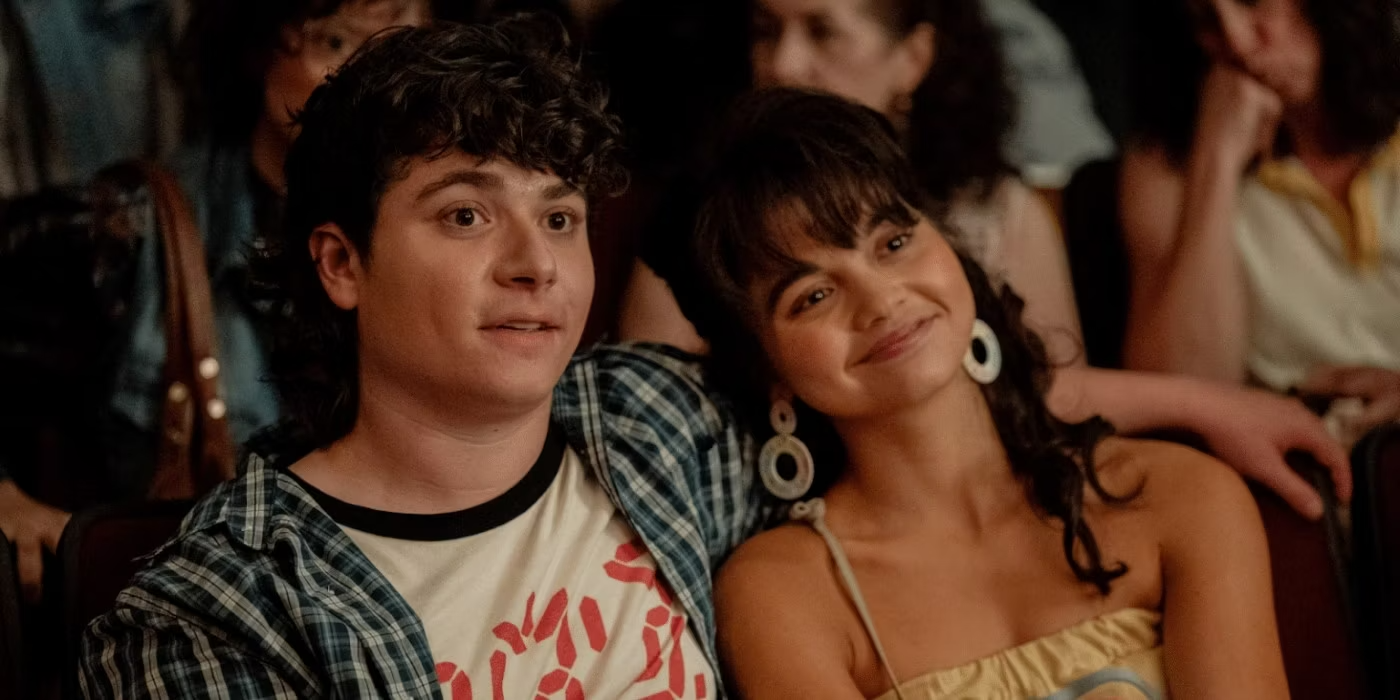THE 4:30 MOVIE – A Lesson in Stakes and Joy

“It’s refreshing to see a “kids on bikes” flick with no monster. The 4:30 Movie is a refreshing and nostalgic teen flick where nobody dies, nobody faces off against a scandal, conspiracy, or threat. We don’t always need to see our teenagers suffering. It’s nice to see a film about youthful joy.
Kevin Smith nails an essential truth of all our teenage years: the stakes at hand couldn’t be lower to an adult brain bogged down with the Longview of time and the trials of self, but the stakes couldn’t be more crucial and all-encompassing to us in our youth.
Our hero in The 4:30 Movie faces off against a ticking clock with the ingenuity and dedication of a spy trying to disarm a bomb and save the world – when the ticking clock and stakes are making it to the 4:30 showing of a detective flick with his crush.
Friendships are tested, theater rules are disregarded and bathrooms are befouled.
The 4:30 Movie features Kevin Smith’s fictionalized self (played wonderfully by Clerks 3’s Austin Zajur) engaging in his plan to finally ask out his summer love (played artfully by Siena Agudong). This however is notabally his love of LAST summer, not the summer of 1986 in which our story takes place – such monumental plans take time to hatch of course. Together with his two best friends (providing the balance of the self-assured but distracted Burny played by Nicholas Cirillo, and the awkward, genuine, and bacon-bearing Belly played by Reed Northrup), they seek the local movie theater to watch the newest sci-fi flick as a pretense to sneak into the r-rated film his date wants to see later that afternoon. Under the watchful eyes of the never-unwelcome Ken Jeong, Genesis Rodriguez, and Adam Pally, our hero’s perfect plan is tested.

While attending a Smodcastle Theater event (the wonderful Atlantic Highlands, New Jersey theater this film is set and shot in) my daughter and I were excited to hear Smith gush about this flick as he was preparing to begin filming. Not just because of the secondhand stoke, Smith exudes whenever he talks about his creative endeavors but because his bedrock concept for the film is that some people go to the theater to escape life and others go to it to understand life better.
My daughter and I are firmly in the latter camp – films help us problem-solve, help us make peace, help us let go, inspire us, and challenge us in ways that not everyone seems to do. This heart of the film made us feel seen in how we seek out the movie theater any time we’re lost or seeking wisdom. Because truth and beauty can come out where we least expect it – even from a space beaver man.
I used the local movie theater to create space to fall in love with my crush, to laugh, and better communicate with my friends I entered those spaces to provide me me a stress-free platform to make memories with my mom and a venue to better understand my dad. All of this happens in a large empty room that serves as a pretense to sell us popcorn.

The 4:30 Movie isn’t without its limits. The original novel and clever idea of cutting back and forth between the films-within-a-film and the story at hand is largely abandoned by the beginning of the film’s midpoint (and only effectively maybe twice). I can’t imagine what was left behind in the first drafts and early cuts of this great idea and kind of mourn the movie that was going to be.
The cameo parade of incredible performers delivering great characters that are criminally under-explored (outside of the theater staff, kids, and one charismatic pro-wrestler that Americans needed to feel that they were safe from their enemies abroad as he laid low their champions in the squared circle). I need hours of Rachel Dratch and Jason Lee as Kevin’s parents and a third act return of Method Man’s local restauranteur.
It’s important to note that these limits aren’t downsides of the film per se because of what their omission allows. To move these other tangents aside allows a simple, clear, and nostalgic story of youth engaging against the tiniest of stakes as if the world was in the balance and their friendships are historical in their importance.
This wonderful narrow focus is best exhibited by the fact this entire story takes place under the lingering threat of nuclear annihilation during the Cold War and occurs entirely on the day of Hands Across America – a monumental event uniting the country in a time of uncertainty – all directly happening in the background of a petty conflict between the minor dictator of a local theater manager short on popcorn and the teens who see theater hopping as their birthright – all with a highschool romance as the all-important drama in the balance.
Coming-of-age movies don’t ever seem to age well – which is essentially the point of them. Any movie one could compare The 4:30 Movie to is largely antiquated (and typically now problematic). These films are a pushpin on a point of an ever-moving, changing, and developing stage of life to mark its gravity and wonder and these films are just for you who grew up in that moment (while my adolescence was just under a decade later, this film felt resonant and familiar as the times were largely similar in my corner of the world) and those in their teenage years in the moment of its release. They are by necessity the opposite of timeless. This connection and fleeting nature of these films are why we always need more of them despite how they age or miss those who come after us.
Even among these other “adolescence is the whole world” flicks, I’ve never seen a filmmaker present the way that teenagers psychologically stand alone on their own stage, in their lone spotlights as they differentiate themselves from their parents and their peers in such a nonjudgmental, non-cynical and delightfully ordinary way – free of sarcasm, cynicism or mocking since The Breakfast Club or Stand by Me.
Your heart stays with the kids as much as your jaded adult brain wants to step back and infantilize the whole thing. The youthful characters refuse to let you move outside of their lens. Watching this flick with my teenage daughter brought this whole wonderful aspect into focus as she was locked in not looking backward but firmly viewing from her moment in time- it didn’t hurt that the kids were sitting in her favorite movie theater in the world, but I think she’d love it just the same either way.
All this on top of the fact that I could watch Kevin Smith shoot scenes of two people just talking forever. He’s the king of making dialogue feel relatably mundane, intensely philosophical, and hilarious simultaneously and it’s what I’m always most excited to see in any of his films and 4:30 delivers this abundantly.
The 4:30 Movie is a hyper-local love letter to the independent movie theater as the town square and third-place for our youth. Shot in a way that makes a small-town theater feel like the whole world. New Jersey is as present as it always is in Kevin Smiths film and it holds the geography of the film well.
As a former fat New Jersey kid who also wore a t-shirt in the pool when his crush was around and constantly complained his friends had “no respect for cinema”, this movie felt real, grounded, and winsome.
The 4:30 Movie serves as a reminder that despite the depths of trauma we carry forward from our youth, not every story of adolescence needs to bear that weight. It doesn’t minimize or dismiss that trauma to also remember how we thrived, reflect on the challenges that we met, and bask in the happiness and affections we found. We must imagine our teens happy as they climb the slopes of growing up and seek wisdom in movie theaters or wherever they find inspiration to make their journey meaningful.”
